|
INTRODUCING OUR MASTER OF CEREMONIES...
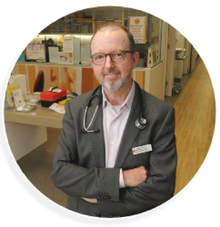
|
ADJUNCT ASSOCIATE PROFESSOR GABRIEL SHANNON AM, CONSULTANT PHYSICIAN, CENTRAL WESTERN NSW
Gabriel Shannon AM has been a Consultant Physician
practising in Orange and Central Western NSW since 1980. In the early 1980’s he
helped establish renal dialysis services in the Central West of NSW and the
first fully rural diabetic education centre in NSW. During these years Gabriel
has been a Board Member of both the Clinical Excellence Commission & Agency
for Clinical Innovation. He remains the Deputy Head of the School of Rural
Health, University of Sydney. He also helped establish a revised model of inpatient
medical care in Orange using Structured Interdisciplinary Bedside Rounds with
the help of the Clinical Excellence Commission a model which has since spread
to many metropolitan and rural hospitals as a CEC project.
Gabriel Shannon was awarded the RACP Medal for Clinical
Service in Rural and Remote Areas in 2014 and received the Inaugural
Collaborative Leader of the Year award at the NSW Health Innovation Awards in
2013.
|
|
|
INTRODUCING OUR PLENARY SPEAKERS....
|
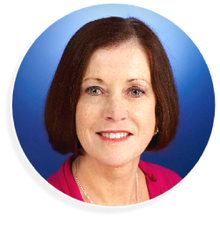
|
ADJUNCT PROFESSOR ANNETTE SOLMAN, CHIEF EXECUTIVE HEALTH EDUCATION AND TRAINING INSTITUTE
Annette is a patient centred
and people orientated Chief Executive of the Health Education and Training Institute (HETI).
Annette is interested
and active in person centred care
practices and its application to the clinical practice setting. The value of
leadership development to provide a person-centred
approach to healthcare and a workplace culture of effectiveness Annette sees as
foundational elements of a highly skilled workforce.
Annette is currently focused on establishing HETI
as a higher education provider and on strengthening the relationships between
HETI and our health and academic partners to capitalize on the opportunities
into the future.These opportunities
include contemporary education programs for the diverse NSW Health Workforce, a
research agenda for HETI focused on exploring contemporary approaches to
curriculum design and delivery as well as workplace cultural change.
|

|
|
|
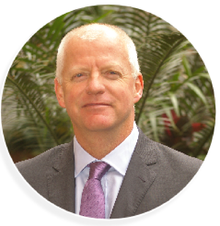
|
WAYNE JONES, CHIEF EXECUTIVE NORTHERN NSW LOCAL HEALTH DISTRTICT
Wayne Jones started in health over 30 years ago undertaking his generalist nursing training. For the next 10 years Wayne obtained multiple post graduate nursing qualifications in areas including Intensive Care and Cardiology.
Wayne then progressed into a variety of nursing management roles and eventually came up to the Northern Rivers as the Executive Officer of Lismore Base Hospital.
Prior to his appointment as Chief Executive Wayne has held a variety of roles in the North Coast including Manager of Planning, Director of Clinical Streams and most recently Chief of Staff.
|

|
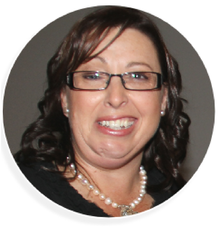
|
KELLY FORAN, CEO, FRIENDLY FACES HELPING HANDS FOUNDATION
Kelly Foran, founder and CEO of the Friendly Faces Helping Hands Foundation, is an enthusiastic businesswoman but above all she is human. From firsthand experience she knows the frailty of life and of the often overwhelming challenges faced when country people become ill or injured.
For several years from 2002 Kelly and her young son endured a harrowing list of illnesses, which saw her family leaving their home in rural New South Wales and spending large amounts of time in hospitals in Sydney and Brisbane. The logistics of handling not only operations and depleted funds but of finding basic services in a strange environment led Kelly to form Friendly Faces Helping Hands, a foundation which links country people to major hospitals and invaluable health services.
In the five years since the Foundation’s inception over 60,000 people have been assisted by sourcing information on the website and by ringing the Foundation’s hotline which Kelly answers herself.
|

|
|
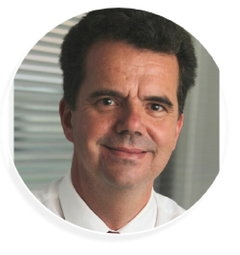
|
PROFESSOR
TIM SHAW, DIRECTOR RESEARCH IN IMPLEMENTATION SCIENCE AND EHEALTH GROUP (RISE)
Tim is the inaugural Professor of eHealth and Director of
the Research in Implementation Science and eHealth Group (RISe) in the Faculty
of Health Sciences at the University of Sydney. Tim leads implementation
science across Sydney West and Sydney Catalyst and Translational Cancer
Research Centres and has an active research and development program both in
Australia and Internationally.
Tim’s research interests lie at the intersection of
implementation science and quality improvement and how Information and
Communication Technologies (ICT) and health data is impacting on practice,
professional development and system improvement.
Sponsored
by the Australian Rural Health Research Collaboration

|

|
|
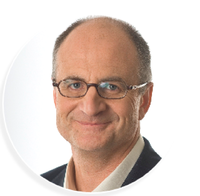
|
JAMES O'LOGHLIN, BROADCASTER & AUTHOR
No matter how well we are doing things today, if we keep doing them the same way, in 10 years’ time we will have been left behind. The increasingly rapid pace of change quickly turns todays’ cutting edge best practice into tomorrows’ fax machine. To stay relevant and successful, organisations need to innovate. Of course, everyone tells you innovation is important. The problem is that no one tells you how to do it.
In eight years hosting ABC-TV’s ‘The New Inventors’ James O’Loghlin worked with over a thousand innovators and inventors who thought outside the box and came up with new and better ways of doing things. In his keynote presentation he will discuss:
• How innovation happens.
• The three things innovators do better than everyone else.
• How to learn to step back and come up with ideas to improve the way you do things.
• How to quickly and cheaply identify the ideas that are going to improve the bottom line and implement them.
• How to build a workplace culture that encourages everyone to be innovative.
James O'Loghlin is one of Australia's most respected, entertaining and experienced corporate speakers, corporate comedians and media personalities, best known as the host of over 300 episodes of "The New inventors" on ABC-TV, and for his witty and entertaining programs on ABC Local Radio.
|

|
|

|
FACILITATOR OF THE NDIS PANEL
JAMES O'LOGHLIN, BROADCASTER & AUTHOR
Facilitated by James O’Loghlin, the following panel of experts will discuss current progress and opportunities, particularly from a rural perspective, on implementation of the National Disability Insurance Scheme. Service providers, policy experts and participants in the scheme will provide an interesting range of perspectives on this major reform now being implemented across NSW.
|

|
Panel Member - The National Disability
Insurance Scheme (NDIS): impacts and opportunities for rural communities.
|
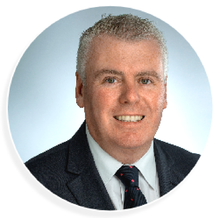
|
JAMES DUNNE, DIRECTOR, SOCIAL POLICY IMPLEMENTATION OFFICE, NSW MINISTRY OF HEALTH
James is the Director of the Social
Policy Implementation Office within the NSW Ministry of Health. James leads a
team that has responsibility for NSW Health’s component of the transition to
the National Disability Insurance Scheme.
James has over 25 years of experience
in Health Care including senior clinical and operational management roles, together
with leading organisational and state level change programs.
James has led many large projects and change
initiatives delivering patient/client and organisational needs from initiation
through to implementation and evaluation.
James is an Honorary Associate at the
University of Technology Sydney, where he is a guest lecturer on large system
transformation.
James is the vice-chair of the Board for the
NSW Public Service Commission Community of Change Professionals.
|

|
Panel Member - The National Disability
Insurance Scheme (NDIS): impacts and opportunities for rural communities.
|
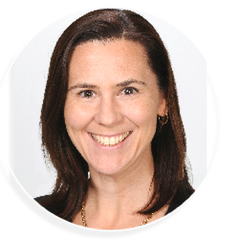
|
JENNY MARTIN, DIRECTOR OF ALLIED HEALTH – CHILDREN, YOUNG
PEOPLE AND FAMILIES, HUNTER NEW ENGLAND LOCAL HEALTH DISTRICT
Jenny Martin is the Director of Allied Health, Children, Young People
and Families for the Hunter New England Local Health District. She has extensive
experience in the NSW healthcare system in clinical, management and leadership
roles, and has a background in paediatric physiotherapy. Jenny has an interest
in client and family-centred care, and building collaborative and effective partnerships
between services, agencies and community groups.
Jenny is a member of the Hunter New England National Disability
Insurance Scheme (NDIS) Project Team. She has provided leadership around the
interface between health, the National Disability Insurance Agency and the
disability sector for children and young people within the Hunter trial site,
and has continued this across Hunter New England with the commencement of full-scheme
roll-out.
Jenny has recently been appointed as a Co-Chair for the NSW Agency for
Clinical Innovation Intellectual Disability Network.
|

Panel Member - The National Disability
Insurance Scheme (NDIS): impacts and opportunities for rural communities.
|
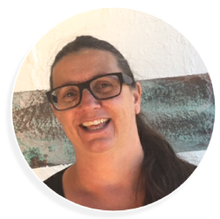
|
JOANNE MCLEAN, NATIONAL DISABILITY SERVICES (NDS) - SECTOR SUPPORT CONSULTANT
Joanne Mclean has been a sector support
consultant, with National Disability Services (NDS), for the past three years. Joanne
works with disability support providers both in NSW and Nationally to support
their transition to the National Disability Insurance Scheme (NDIS). In working
with CEO’s, boards, senior managers and a range of other staff, her focus is on
enabling the change needed in culture, systems and business structures required
for support providers to effectively transition to the NDIS.
Joanne worked with the NSW Government, Family and
Community Services, Ageing, Disability and home care (ADHC), developing the
Accommodation service system. This included development of new service models,
policy frameworks, and service management structures to enable individualised service
provision across NSW. Joanne has worked in the disability field for over 20
years and has had many roles focusing on problem solving, cultural change,
strategic thinking and leading staff.
|

Panel Member - The National Disability
Insurance Scheme (NDIS): impacts and opportunities for rural communities.
|
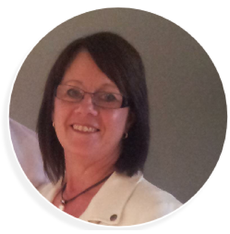
|
SHARON ROBSON, CARER FOR HER DAUGHTER WHO IS AN NDIS PARTICIPANT
Sharon Robson is a mother of 4 children, 2 of which have an aggressive degenerative muscle
disorder (muscular dystrophy). Sharon has been the primary carer for
the past 29 years providing full time physical and emotional support 24 x 7
as well as management and advocacy for all their health needs.
Sharon and her family have travelled
this journey from no support to minimal support to the NDIS support and have
experienced a great deal of change across these years within the health system
and community in regards to the approach and support provided.
Sharon Robson is
a
member of the Family Advisory Council for the Hunter New England Health,
offering advice and feedback to work collaboratively with Hunter New England
Health to deliver a Family Centred Care approach to health services in the
region.
Sharon
assisted
as a consumer representative with HETI to develop the story board for the
E-Tool for Family Centred Care
and also
represented the consumers perspective for Hunter New England Health strategic
planning session in regards to the Pediatric Intensive Care Unit.
|

|
|
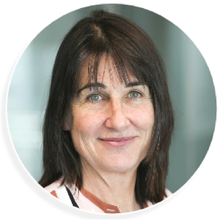
|
DOCTOR KIM SUTHERLAND, DIRECTOR, SYSTEM AND THEMATIC REPORTS, BUREAU OF HEALTH INFORMATION
Dr Kim Sutherland joined the Bureau
of Health Information as a Senior Researcher in May 2010 and was appointed
Director, System and Thematic Reports in December 2013.
Kim has extensive
experience in health services research. Internationally, she acted as Principal
Investigator for a number of studies including: an evaluation of the British
Government's 10-year quality agenda for the National Health Service; a
multi-disciplinary, multi-year project on performance reporting and quality
improvement in the UK; and the development of a chartbook on quality of
healthcare in Canada.
Kim Sutherland has a Bachelor of Science degree from the University
of Technology, Sydney; a Master of Science from London Hospital Medical
College; a Master of Business Administration from Imperial College, London; and
a Doctorate from the University of Cambridge. Her work has been published in
numerous books and peer-reviewed journals.
|

|
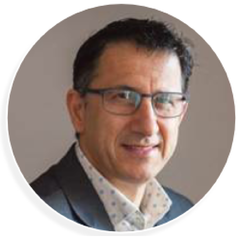
|
DOCTOR VAHID SABERI, CHIEF EECUTIVE OFFICER, NORTH COAST PRIMARY NETWORK
Prior to Vahid Saberi's current role (since 2012), Vahid worked in
NSW Health senior positions for 19 years. Vahid has managed a wide range of services from acute specialist
hospitals, to all aspects of primary and community health care.
Vahid has a
long career in Strategic Development, Planning and Population Health and
Capital Infrastructure (building of hospitals, community health centers and
other facilities).
Vahid is extensively involved in research and his
postgraduate qualifications include: Doctorate in Business Administration;
Master of Business Administration; and Master of Public Health.
|

|

|
KYLIE GWYNNE, DIRECTOR, POCHE CENTRE FOR INDIGENOUS HEALTH, THE UNIVERSITY OF SYDNEY
Kylie leads the Poche Centre for Indigenous Health at the
University of Sydney. The Poche Centre delivers health care services alongside
28 communities, provides scholarships for more than 150 Aboriginal people and
undertakes applied research to improve health outcomes for Aboriginal people.
Kylie also hosts the National Poche Indigenous Health Network and supports its
Chair, Professor Tom Calma AO.
Under Kylie’s leadership, the Poche Centre has placed strong
emphasis on health research to inform Aboriginal health service delivery. In
2015, the Poche Centre for Indigenous Health won the Australian Financial
Review Higher Education Community Engagement Award for the oral health program.
Prior to her role in the Poche Centre Kylie held senior and executive positions
in the not-for-profit and government sectors in health and human services policy
and service delivery, and in these roles Chaired and participated in numerous
National and State-based Government advisory committees. She has also headed
the funding and development of social policy research. Kylie has significant
operational management and legislative and policy development experience.
|

|
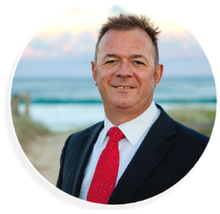
|
DOCTOR ADRIAN DUNLOP, AREA DIRECTOR AND SENIOR STAFF SPECIALIST, DRUG AND ALCOHOL CLINICAL SERVICES FOR THE HUNTER NEW ENGLAND LOCAL HEALTH DISTRICT
Dr Adrian Dunlop MBBS PhD GDipEpiBiostat FAChAM, is Area Director and Senior Staff Specialist, Drug and Alcohol Clinical Services for the Hunter New England Local Health District, Chief Addiction Medicine Specialist in the Mental Health, Drug and Alcohol Office in the NSW Ministry of Health, Conjoint Associate Professor in the School of Medicine and Public Health, Faculty of Health, University oaf Newcastle.
He is a Foundation Fellow of the Australasian Chapter of Addiction Medicine (FAChAM) in the Royal Australasian College of Physicians, Past-President of the Australasian Professional Society on Alcohol and other Drugs (APSAD), member of the Society for the Study of Addiction (UK), College of Problems on Drug Dependence (USA) and the International Society for Addiction Medicine.
In 2005 he was awarded a Churchill Fellowship to investigate the treatment of opiate dependence in pregnancy. In 2010 he was awarded Clinical Leader of the Year by Hunter New England Health. In 2014 he was awarded the APSAD clinician award for excellence in Science, research and practice in the drug and alcohol field and was a 2015 James Rankin orator for APSAD. He has over two decades of experience in the drug and alcohol field, over 110 publications including 45 peer reviewed journal articles, 8 book chapters and a co-author on Australian guidelines on addiction management, and attracted 30 grants including over $A10 million in collaborative competitive research funding.
| |
"OUT OF THE BLUE"
CLICK ON THE IMAGE BELOW FOR A SNEAK PEAK OF
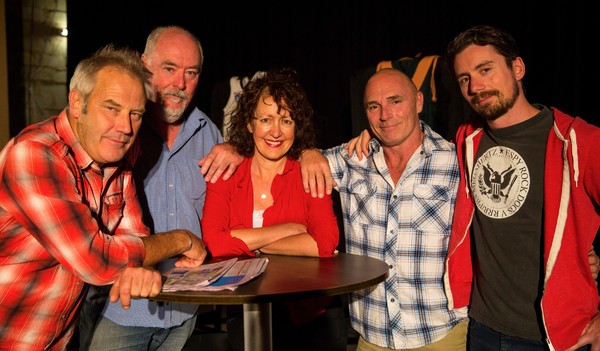
|
|
This play “OUT OF THE BLUE” will be performed during the 2016 NSW Rural Health & Research Congress.
Life can be tough in the bush, especially when you lose a mate to suicide.
“OUT OF THE BLUE” is a play about just that, written by Stig Wemyss and
presented by the widely acclaimed Health Play.
The play, is set in a hotel bar, where locals have gathered to pay tribute to a mate
they have lost to suicide.
Reflecting the harshness of life in the bush, the theme is relevant to men
everywhere. The play is human, very real, and at times very funny.
Based on the “Out of the Blue” project by Bass Coast Health Philip Island, the play
offers a powerful pathway to sharing, conversation and action.
In these days of depression, anxiety and ongoing drought, the play is vital, especially
in rural areas, where the problem of suicide is a threat to many communities.

|


























